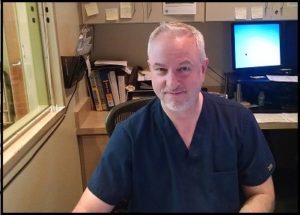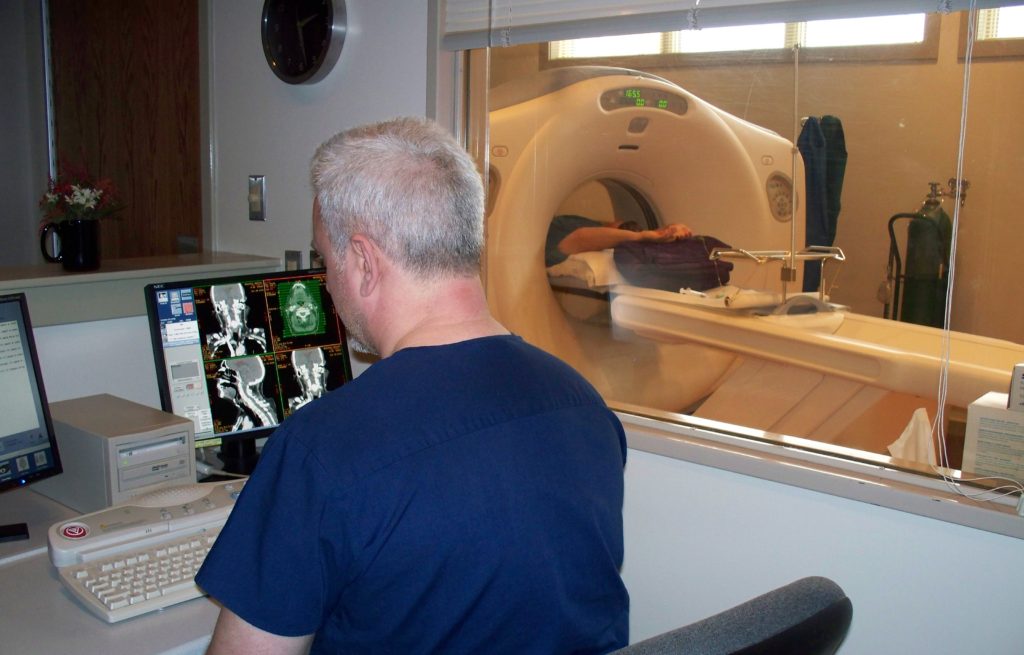 When it comes to CT (computed tomography) screening, there are few better technicians than Paul Hyde of Regional Medical Imaging. He is the manager of the CT department, and you’re likely to meet him if you come in for an appointment at RMI’s Lennon Road office.
When it comes to CT (computed tomography) screening, there are few better technicians than Paul Hyde of Regional Medical Imaging. He is the manager of the CT department, and you’re likely to meet him if you come in for an appointment at RMI’s Lennon Road office.
His passion for the technology started in 1982 when he attended radiology school at St. Joseph Hospital’s school of radiology in Flint. CT technology was coming online and once he learned about it, Hyde took the opportunities to learn more.
From there, he worked from 1982-2003 as a staff tech radiologist, CT manager, and shift supervisor at Genesys and Sturgis hospitals, and also as a per diem CT applications specialist for General Electric & Toshiba (thus learning the electro-mechanical aspects of CT machines). In addition, Hyde has taught university classes on CT scanning and technical radiology — something he immensely enjoys.
In 2003, Hyde joined RMI as CT Manager. Today, he sits on the boards of directors for the Intersocietal Accreditation Commission for CT, the American Society of Radiologic Technologists, and has held several positions on the Michigan Society of Radiologic Technicians.
CT (also called CAT scan) uses a rotating x-ray device that takes a series of x-rays that are reconstructed by computer. It shows details of all tissues, and can spot a vast range of issues. This makes it ideal for radiologists looking for quick answers.
That’s important, Hyde said, praising CT scanning for its primary trait – speed.
“CT is truly a modality that meets the word ‘STAT’ and can deliver,” he said. “MRI is great, but it is not fast. PET is phenomenal, but it is also not quick. With CT, a patient is scanned for a few minutes and shortly thereafter the radiologist can begin to create a report of findings to help the patient’s physician determine a diagnosis.”
Hyde notes that RMI was one of the first four facilities to offer CT exams in the state of Michigan.
“We were a pioneer in the technology, and that is one reason I joined RMI,” he said, noting RMI CEO Dr. Randy Hicks sits on several medical boards and is always looking a decade ahead in terms of medical technology. Bringing on CT was no exception.
As part of his job, Hyde sees how CT imaging helps to saves lives on a daily basis. Again, the key like so many other things is early detection. Whether it is the risk of lung cancer from smoking, or fibrosis from industrial exposure, CT can help detect problems early.
“The upshot is, if you are in a high-risk group talk to your doctor about a CT exam,” Hyde said. “If you’ve been a smoker, lie down on the table and give yourself some peace of mind.”

